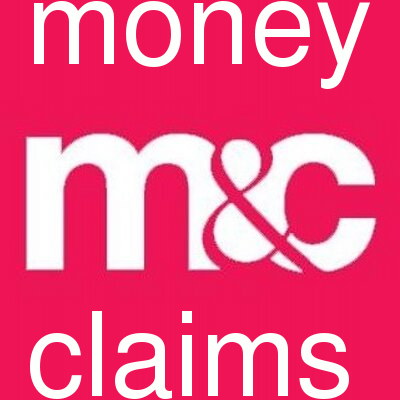Litigation rather than innovation (good for lawyers)

Summary: The rapidly-declining quality of European Patents (EPs) would necessarily flood the market with patents that are good for nothing but extortion (as actual lawsuits would have these patents voided by judges); this means that non-producing actors are set to benefit the most, whereas small companies should prepare for a lot of harm (legal costs)
THE quality of European Patents (EPs) worried us for quite some time, predating António Campinos and even Battistelli, in particular because of software patents. Things have gotten worse over time. Today's European Patent Office (EPO) very openly and shamelessly promotes software patents in Europe, calling them "AI" or "CII" or "ICT" or "IoT" or "4IR" or whatever (there are over a dozen buzzwords like these, usually cryptic acronyms).
We
aren't against patents, not as a whole and not per se, either. We're pro-patent
quality, that's all. No need to settle or go to court over patents that judges would not annul, as per the law. Examiners feel the same way, judging by the petition many of them signed last year. Earlier this week we saw
this press release:
... notified by the European Patent Office (EPO) of its intent to grant the Company a new patent (EP3325623) covering the combination of AsiDNA™, Onxeo’s first-in-class agonist of the DNA Damage Response (DDR) , with any PARP inhibitor (PARPi), in all countries of the European Union (EU).
DNA?
Remember when the EPO granted patents on
physical things? Actual inventions, not just lives (nature) and code (mathematics)? Back when the EPO actually cared about patent quality, seeing it as a top priority? Now it's just
a trolls' granting (for litigation pipeline) machine. Earlier this week the EPO
took note of the first EP ever granted (
warning:
epo.org link): "EP 0 000 001 was only one in a batch of 112 applications published on that day. Others included a "Combination lock" (EP 0 000 003), a "Lifting device" (EP 0 000 008), and a "Method for the manufacture of amino-formaldehyde resins" (EP 0 000 096). They came from applicants based in Luxembourg, Sweden, the UK, the US, Japan and other countries."
Notice how those are physical,
concrete inventions. And these went to actual inventors.
Earlier this week the patent trolls' lobby mentioned how
Nokia's patents had ended in the hands of patent trolls. "It was owned by Nokia,"
IAM wrote. "They transferred it to an NPE in 2017. Now it’s being sold. There are 3,500 families, so a lot of patents."
The subject was brought up
here. "Prior to this headline," Florian Müller, "I wasn’t aware of Nokia planning to divest a huge patent portfolio. Could be an interesting deal."
The
said article dubbed it "news of a huge Nokia patent disposal."
"New Nokia portfolio for sale is the largest open market patent deal in telecoms since Nortel and could provide a guide to how attractive the IP sector is to private equity funds and other investors," it says further down.
As a reminder to our readers, Microsoft had instructed Nokia to pass patents to patent trolls (e.g.
MOSAID/Conversant) which then attacked Linux, i.e. Microsoft's competition.
Is this actually beneficial to Europe? Or to innovation?
Now, going back to the EPO,
here is what it wrote earlier this week: "The main challenge for patent offices from AI will be its rapid growth across a range of technical fields. More on how the EPO is well prepared to face this challenge here: http://bit.ly/AIpatents"
"AIpatents" are just software patents. Applicants just start calling lots of algorithms "AI" (which in itself is algorithms anyway) and the EPO then grants fake software patents. At around the same time the EPO wrote:
Few inventions in the 21st century stand to have as great an impact as self-driving vehicles. This study provides a comprehensive picture of current trends & emerging leaders in self-driving vehicle technologies. http://bit.ly/SDVstudy #FutureOfCars #SelfDriving pic.twitter.com/AJC6zuRNNF
The EPO is mostly advertising patents on computer vision here, i.e. algorithms or software patents. It
added: "Drawing on the most recent data from the EPO & incorporating advanced technology expertise, this study is a unique source of intelligence for policymakers and industry leaders looking to understand changes in the #selfdrivingvehicles sector..."
"SDV" is just their latest buzzword (among many). How about "Blockchain"? The EPO
invited very notorious patent trolls (still active, based on IAM) to its panel on the topic. There are two aspects to that; one is management of patent data and the other is patenting of blockchains (techniques pertaining to these). Regarding the former,
IP Kat's Tian Lu has just published
this article about (mis)use of "Blockchain" by the litigation 'industry' (not examination even):
Blockchain technology, for all its merits, is not (that) new. This Kat believes that even before all the above-mentioned Courts’ nice initiatives, parties could submit any forms of evidence they preferred, which of course could include the blockchain-related evidence. In other words, China does not suddenly give the green light towards blockchain authenticated evidence nor does it give a total and unconditional acceptance. The blockchain evidence, as a type of electronic data, must fulfill the legal admissibility requirements on evidence in general, with no exception -- the Chinese courts retain an open and neutral stance in this sense.
It's all about lawsuits, as usual. The EPO became all about lawsuits and it's imitating China when it comes to patent quality. This is a dangerous recipe. Do we want a Europe full of Nokias or full of patent trolls like the ones it's nowadays arming? Ericsson does the same.
⬆

